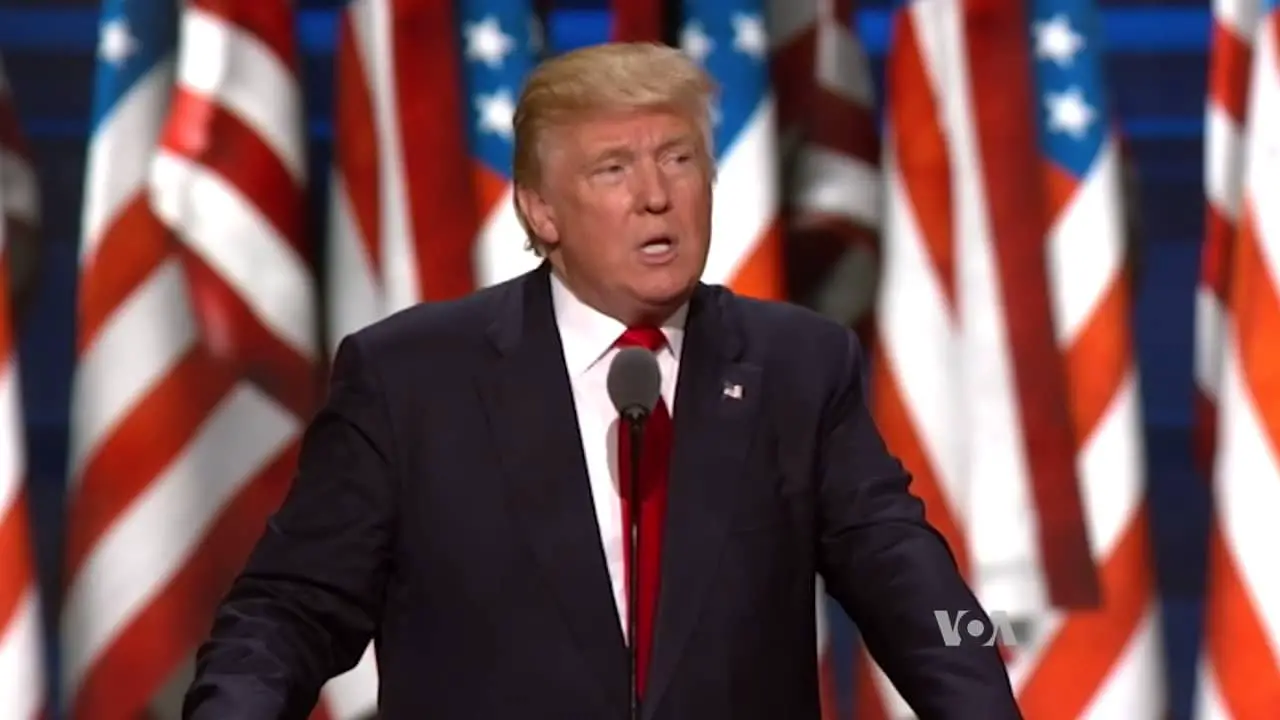The indictment of former President Donald Trump in Fulton County Aug. 14 on charges of trying to overturn the 2020 presidential election in Georgia was the culmination of two and a half years of investigation.
But in another sense, the case is only beginning and is likely to drag out beyond a 2024 election that could pit Republican Trump in a rematch with Democratic incumbent Joe Biden.
That’s because Fulton District Attorney Fani Willis cast a wide net in putting together a racketeering case against not only Trump but 18 other defendants and 30 unindicated co-conspirators. Each one of the defendants is accused of violating Georgia’s Racketeer Influenced Corrupt Organizations Act (RICO), a charge that carries a minimum prison sentence of five years.
“RICO trials are legendarily long affairs,” said Christina Harvey, executive director of Stand Up America, a New York City-based progressive nonprofit founded during the 2016 presidential campaign.
In 41 counts, the 97-page indictment charges Trump and the other defendants with participating in a “criminal enterprise” that tried to convince high-ranking state and federal officials – including then-Vice President Mike Pence – to throw out the Electoral College results in favor of Biden in Georgia and a half dozen other swing states and declare Trump the winner of the electoral votes in those states.
Three of Trump’s co-defendants in the Georgia case are accused of participating as “fake” electors and casting their electoral votes for Trump even though Biden carried the Peach State. Another participant in that meeting, Lt. Gov. Burt Jones, could face separate charges because of a court ruling prohibiting Willis from investigating him due to a conflict of interest.
The scheme allegedly included filing false statements, lying to members of Georgia’s General Assembly, harassing and intimidating two rank-and-file Fulton County election workers, illegally accessing voting machines and data in Coffee County. and committing perjury to cover up the conspiracy.
The indictment alleges 161 criminal “acts” committed by the defendants, beginning with Trump’s nationally televised speech the night of the 2020 election claiming victory stretching to September of last year, when one of Trump’s lawyers was accused of lying to the special grand jury Willis formed to investigate the case.
Trump struck back against the indictment, labeling Willis on the former president’s social media site Truth Social as a “rabid partisan” out to sink his hopes of winning back the presidency.
“Willis has strategically stalled the investigation to try to … interfere with the 2024 presidential race and damage the dominant Trump campaign,” Trump wrote. “These corrupt Democrat attempts will fail.”
Even Republicans who have accused Trump of promulgating lies in an effort to steal the election have accused Willis of overreaching.
Former New Jersey Gov. Chris Christie, a former Trump ally now seeking the Republican presidential nomination, said indicting Trump in Fulton County was unnecessary in that it duplicates many of the federal charges brought against the ex-president by Special Counsel Jack Smith.
“The conduct is very disturbing,” Christie said. “[But] Jack Smith charged the case weeks ago. … The double charging of Donald Trump complicates things in a way that makes administration of justice much more difficult.”
Lawyers for Trump’s chief of staff and co-defendant Mark Meadows have filed a motion to move the state case into federal court. One advantage to the defendants of going to federal court would be to expand the jury pool from heavily Democratic Fulton County to other counties with more Republican voters.
But Willis argued during a news conference the night of Aug. 14 that state court is a proper venue.
“All elections in our nation are administered by the states, which are given the responsibility of ensuring a fair process and an accurate counting of the votes,” she said. “The states’ role in this process is essential to the functioning of our democracy.”
Meadows’ lawyers are expected to cite a federal law that allows defendants to be tried in federal court if the acts they are accused of committing took place as part of their official duties as federal officials. The same argument presumably would apply to Trump and former U.S. Attorney General Jeffrey Clark, another co-defendant.
But Norm Eisen, a senior fellow at the Brookings Institution, a Washington, D.C.-based think tank, is skeptical of that argument.
“You’re going to have to assert that an attempted coup is part of the official duties of a president or chief of staff,” he said. “No court would swallow that.”
Svante Myrick, president of the progressive advocacy group People for the American Way, said an advantage of a trial in state versus federal court is that it could be televised. Cameras are not allowed in federal court.
“People believe what they can see on their screen,” he said.
Another advantage to the prosecution of pursuing the case in state court is that neither Trump nor any other future Republican president could pardon anyone convicted of state crimes.
Lawyers for the defendants also are expected to argue statements their clients made that are being charged as crimes were asserting their First Amendment rights to free speech.
But former DeKalb County District Attorney Gwen Keyes Fleming said free speech has limits.
“Those rules stop at filing false and frivolous claims,” she said.
Fleming said the key to the prosecution will be proving the defendants knowingly lied in claiming the Georgia election was rigged despite numerous investigations that dismissed the allegations as false. While no one can get inside the defendants’ heads, she said there are plenty of texts and emails that go to intent.
“There were admissions folks did not believe this was true, but they were pursuing it anyway,” she said.
Finally, Trump’s critics pushed back on the argument that he is being pursued out of political motivations.
“This is not about getting Donald Trump,” said Joanna Lydgate, CEO of States United Democracy Center, a Boston-based group that advocates for safe and accurate elections. “It’s about taking every possible step to protect democracy and the rule of law.”
Here is a list of the 19 defendants indicted by a Fulton County grand jury:
- Donald Trump, former U.S. president
- Rudy Giuliani, former New York City mayor and Trump’s personal lawyer
- John Eastman, Trump lawyer
- Mark Meadows, former Republican congressman from North Carolina and former White House chief of staff
- Kenneth Chesebro, pro-Trump lawyer
- Jeffrey Clark, former U.S. attorney general
- Jenna Ellis, Trump campaign lawyer
- Ray Smith, Trump campaign lawyer
- Robert Cheeley, lawyer accused of promoting false election claims
- Mike Roman, Trump campaign official
- David Shafer, former Georgia state senator and former Georgia Republican chairman, fake elector
- Shawn Still, Republican state senator from Norcross and fake elector
- Stephen Lee, pastor connected with alleged intimidation of election workers
- Harrison Floyd, leader of Black Voices for Trump
- Trevian Kutti, publicist connected to alleged intimidation of election workers
- Sidney Powell, Trump campaign lawyer
- Cathy Latham, fake elector tied to Coffee County voting equipment breach
- Scott Hall, bail bondsman tied to Coffee County voting equipment breach
- Misty Hampton, Coffee County elections supervisor
Here is the timeline of the case thus far:
Dec. 3, 2020: A Georgia Senate subcommittee hears from witnesses including Rudy Giuliani, then-President Donald Trump’s personal lawyer, on allegations concerning the state’s voting machines and watch a video claiming ballot-counting irregularities that state election officials have dismissed as unfounded.
Dec. 10, 2020: A Georgia House committee hears a second presentation from Giuliani airing claims of fraud in Georgia’s presidential election.
Dec. 14, 2020: A group of Republican “fake” electors meets at the Georgia Capitol to cast the state’s 16 electoral votes for Trump at the same time the real electors – Democrats – are certifying Biden’s victory over the incumbent president one floor above.
Jan. 2, 2021: Trump calls Georgia Secretary of State Brad Raffensperger urging the secretary, who heads the state Elections Division, to “find” 11,780 votes, one more than Biden’s margin of victory in Georgia.
Feb. 10, 2021: Fulton County District Attorney Fani Willis announces she is launching an investigation into alleged attempts to influence Georgia’s 2020 elections, including Trump’s January call pressuring Raffensperger to overturn the results.
Jan. 20, 2022: Willis requests authorization to form a special purpose grand jury to hear testimony in the case because potential witnesses are refusing to cooperate without a subpoena to compel their testimony.
May 2, 2022: The special grand jury is selected, consisting of 23 Fulton County residents and three alternates. Over the next eight months, the panel hears from a host of high-profile witnesses including Raffensperger, Gov. Brian Kemp, Lt. Gov. Geoff Duncan, Georgia Attorney General Chris Carr, Giulliani, then-Georgia House Speaker David Ralston, and U.S. Sen. Lindsey Graham, R-S.C.
July 25, 2022: Willis is disqualified from including then-state Sen. Burt Jones, R-Jackson, in the investigation. A Fulton County judge rules Willis has a conflict of interest because she hosted a fundraiser for Jones’ Democratic opponent in the race for lieutenant governor. Jones wins the election in November.
Jan. 9, 2023: Fulton County Superior Court Judge Robert McBurney announces the special purpose grand jury has completed its work and delivered its report.
Feb. 16, 2023: McBurney allows a portion of the report to be released to the public showing the panel is recommending that one or more witnesses be indicted for perjury.
April 24, 2023: Willis says she will announce “charging decisions” resulting from the investigation between July 11 and the beginning of September.
July 17, 2023: The Georgia Supreme Court rejects a bid by Trump’s lawyers to quash the investigation.
Aug. 14, 2023: After a marathon session and hearing from at least four witnesses, a Fulton County grand jury indicts Trump and 18 others on felony charges of conspiring to overturn the 2020 presidential election results in Georgia.

Dave Williams | Capitol Beat News Service
Dave Williams is the Bureau Chief for Capitol Beat News Service. He is a veteran reporter who has reported on Georgia state government and politics since 1999. Before that, he covered Georgia’s congressional delegation in Washington, D.C.


